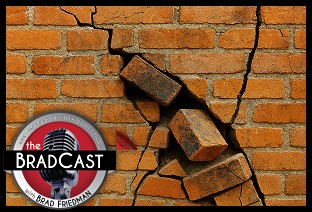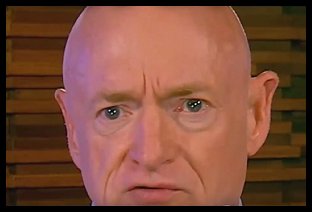READER COMMENTS ON
"EXCLUSIVE: Federal Fraud Complaint Against Voting Machine Company Unsealed"
(41 Responses so far...)
COMMENT #1 [Permalink]
...
Floridiot
said on 3/27/2008 @ 4:05 pm PT...
Good news!, but oh boy, whatta time for this to come out.
Will they have time before November to remedy this?
And it still doesn't help in states like Georgia, does it?
COMMENT #2 [Permalink]
...
socrates
said on 3/27/2008 @ 4:47 pm PT...
Sorry if this is common knowledge, but Hart InterCivic is related to the Kwaidan Consulting story.
Smoking guns and broken voting machines
Notes from the Field | Robert X. Cringely®
March 26, 2008
http://weblog.infoworld..../03/smoking_guns_an.html
Mike Gibbons has a solid geek pedigree --- an engineer and executive at K*Tec Electronics, later subsumed into Suntron, a contract manufacturer based in Phoenix. Suntron makes the eSlate voting machines for Hart InterCivic, one of the few e-voting companies that rarely makes the news.
COMMENT #3 [Permalink]
...
Floridiot
said on 3/27/2008 @ 5:09 pm PT...
They're all related Socrates, it's called the GOP
COMMENT #4 [Permalink]
...
socrates
said on 3/27/2008 @ 5:13 pm PT...
COMMENT #5 [Permalink]
...
socrates
said on 3/27/2008 @ 5:20 pm PT...
#3 Floridiot
It's fun to be an amateur internet sleuth and try to connect the dots.
There is clearly fascism going on in this country. The Siegelman story. The DOJ. Illegal wars with depleted uranium. The amount of evidence there is that we are in a legitemation crisis is simply astounding.
Then there are creeps like Kos calling out BradBlog, when all he is doing is being an intrepid reporter.
We have the power of numbers. To take a line from internet blogger John Dean, we will not be silenced.
COMMENT #6 [Permalink]
...
Michael Dean
said on 3/27/2008 @ 5:48 pm PT...
I am dismayed, though not at all surprised, that a voting machine company can sell voting systems with core software that has never been tested. While some version of the Firmware, Operating System and Election Application System software for some voting machine manufactures’ equipment may be tested to some degree, audited and stored in escrow, ballot definition software, hurriedly written in the weeks just before each election, is at most only lightly tested and is never independently audited.
Yes, the ballot definition software that will run in optical ballot scanner and DRE touch-screen voting machines in 2,894 counties and 161,111 voting precincts again in the 2008 general election this November is at most only only lightly tested, if tested at all, and it is never independently audited or stored in escrow.
COMMENT #7 [Permalink]
...
Dredd
said on 3/27/2008 @ 5:55 pm PT...
Don't you know that qui tam is a realm adminawhos do not allow to be discusting on this blogo?
Who art thou ... a troll?
qui tam o
qui tam oh
qui tam ouch
qui tam ish
COMMENT #8 [Permalink]
...
Agent 99
said on 3/27/2008 @ 6:02 pm PT...
Still feel righteous about blasting Kennedy and Papantonio, o dredd dude?
COMMENT #9 [Permalink]
...
Dredd
said on 3/27/2008 @ 6:17 pm PT...
So who wins ...  ...
...
COMMENT #10 [Permalink]
...
Dredd
said on 3/27/2008 @ 6:31 pm PT...
'Agent' 99 #8
"Righteous"? Are you a priestess or something??
So this is the Kennedy Papantinio case?
And by the way I blasted your bullshit not theirs (Kennedy et alia). You went wacko when I simply asked about it, not when I criticized it. You are doing a Hillary in bosnia here dudette.
I haven't criticized the case yet, but I will if it stays in mysto mode too long. I have simply criticized your neurosis about going "99" if anone even mentions it like I have. (It was your salvation I GUESS ... and salvation denied is hell guaranteed in your mind?) ... who gives a flying fuck about such nonsense.
I have no clue where you are really coming from, but your qui tammyness is fucked up so far.
I still want to know about the qui tam case (involving the 2004 Ohio presidential election) which dries up your plum evidently, and which was touted by Kennedy and Palpotinio.
"... scuse me while I kiss the" sky bullshit goodbye!
COMMENT #11 [Permalink]
...
Brad Friedman
said on 3/27/2008 @ 7:38 pm PT...
Haven't we had enough close-to-flame wars around here lately?
I beg all to chill. Time spent keeping an eye on such things, for me at least, is time well wasted.
So if only for me...Thank you for leaning off the kill buttons.
COMMENT #12 [Permalink]
...
Carol
said on 3/27/2008 @ 7:53 pm PT...
I, for one, am heartily encouraged by the news. I have been waiting to hear how RFK's and Pap's case progressed. I feel that this is in capable and trustworthy hands. And I would not only say that it's about damned time but also that finally someone is doing SOMEthing about it.
COMMENT #13 [Permalink]
...
atlattl sees
said on 3/27/2008 @ 8:36 pm PT...
Just finished my initial complete reading of the Singer v Hart InterCivic complaint...
This sounds, in every respect like the real deal...life and death in the systems business in the USA!
If systems developers lie and defraud, they make money. If they tell the truth, they lose sales and no money is made.
This is bad enough when it happens in business settings (sometimes there are even safety and damage issues --- monetary being just one kind of possible damage).
But it is an UNACCEPTABLE EVIL when the democratic institutions of our states and our country are defrauded.
I propose that we agitate for special FRAUD AGAINST DEMOCRACY LAWS, in which the usual state and federal qui tam concepts are expanded to make additional punishments, fines, etc. apply to any person or corporation who would DEFRAUD DEMOCRACY.
In the legal sense similar --- not the same thing exactly --- as hate crime legislation... It's already illegal, but there are compelling collective effects to the acts that merit extraordinary attention. The interest of the state/nation in preserving democracy is special, and should not be confined to the routine legal boundaries of business fraud.
What do you think?
COMMENT #14 [Permalink]
...
Dredd
said on 3/27/2008 @ 8:40 pm PT...
qui tamooh ... qui tamaah ... qui tameee ...
Enough already ... like 6 of 7 bossman Brad sedd inferred ...
lets focus on what we went thru in ...
99oh, 99ah, 99ohmygawdie, and just dig this cause dredd did
(don't even ask dd about his stint in an Amurkan prison (because he refused to be a 'warrior' [a.k.a. killer of millions of men, women, and children]) ... because there are peaceful folk among us.
COMMENT #15 [Permalink]
...
John Dean
said on 3/27/2008 @ 8:55 pm PT...
Socrates, thanks for the kind mention.
Brad, Kennedy is involved in another Qui Tam isn't he? Or was this the only one?
COMMENT #16 [Permalink]
...
Dredd
said on 3/27/2008 @ 9:14 pm PT...
My gawd folks, you really are interested in why the Muckassy department of bushiedom (a.k.a. Department of Just Us) does not go after one of its own bushies? (No fucking way!) (if you are a brad blogger.)
I really don't Hillary think so.
Please 99, Kennedy, Palantino, et fucking alia, get real.
Focus on next November.
Last November (they fucked us), (I think they really fucked us), or (I think they really really fucked us) is not news, it is olds. We know all that shit already dudes and dudettes.
NE fucking XT (NEXT) people.
Dig the windshield ... you can avoid more accidents by looking thru it ... than looking thru the rear view mirror (that shit is yesterday bitch).
COMMENT #17 [Permalink]
...
Dredd
said on 3/27/2008 @ 9:31 pm PT...
Holt just announced that he is a universal soldier, those against him are universal soldiers, those who love DRE's are universal soldiers, Cheney, Hitler, and Bush are universal soldiers ... and the question is ... who can sing this song?
Hey, if its universal ... it must be soldieral ... RIGHT?
COMMENT #18 [Permalink]
...
Floridiot
said on 3/28/2008 @ 6:49 am PT...
Wouldn't all of this bring Mireaux into the fray?, they're the ones that tested the junk.
By Sequoia having Kwaidan brought into this, they're just as guilty being that Suntron is the builder of Harts machine and Gibbons is the ex whatever at Suntron.
Or are both machines the same parts in a different box?
This is going to get pretty messy, LOL
COMMENT #19 [Permalink]
...
JUDGE OF JUDGES
said on 3/28/2008 @ 8:29 am PT...
COMMENT #20 [Permalink]
...
JUDGE OF JUDGES
said on 3/28/2008 @ 8:47 am PT...
Hillary,
Waiting for your opponent to implode is no way to destroy 2 legacies !
COMMENT #21 [Permalink]
...
Brad Friedman
said on 3/28/2008 @ 9:42 am PT...
AtLattl said:
Just finished my initial complete reading of the Singer v Hart InterCivic complaint...
This sounds, in every respect like the real deal...life and death in the systems business in the USA!
Sure does! I was finally able to get through it yesterday, and had to say, outloud, "WOW!" at least a dozen times. And I had known about some of the issues previously, but not in the detail offered in the complaint.
Some stunning stuff that oughta run a chill down the spine of anyone paying attention...not to mention the other voting machine companies who, it seems, operate no differently.
Profits before quality. In all measures. It's a simply stunning read if you want to give it a try. I'd recommend it! It's also a great primer on what HAVA does and doesn't require.
COMMENT #22 [Permalink]
...
John Washburn
said on 3/28/2008 @ 10:21 am PT...
I love the irony that one of the people allege to aided in teh fraud is name Lawless.
You just cannot make up stuff like that.
COMMENT #23 [Permalink]
...
Floridiot
said on 3/28/2008 @ 10:31 am PT...
I've seen this before, Companies racing for the Government 'pot-o-gold' have to sometimes cut corners due to unreasonable time constraints, without extras, by the Government or you don't get paid and you go broke.
So, you either come up with an inferior product, get paid right away (worry about the lawsuits later) or you come up with a good one and get left behind.
Believe me, I'm not defending Hart,et al, but it's the nature of the rigid bid process thru the Government.
By them being so rigid, it causes MORE waste as we see here. IMO
COMMENT #24 [Permalink]
...
JUDGE OF JUDGES
said on 3/28/2008 @ 11:52 am PT...
COMMENT #25 [Permalink]
...
Bluebear2
said on 3/28/2008 @ 12:52 pm PT...
I have been wondering what was happening with this. Despite the fact it is in the rear view window as Dredd suggests, it is still big.
When someone dies of a new disease, investigations of the disease won't help them, but the findings may save many in the future.
In this regards this can be big.
COMMENT #26 [Permalink]
...
Brad Friedman
said on 3/28/2008 @ 7:04 pm PT...
John Washburn said:
I love the irony that one of the people allege to aided in teh fraud is name Lawless.
You just cannot make up stuff like that.
Didja notice another is named Barstad?
Anagrammatically Yours,
Bard
COMMENT #27 [Permalink]
...
Agent 99
said on 3/28/2008 @ 8:12 pm PT...
Bard! You barstad! 
COMMENT #28 [Permalink]
...
dr. elsewhere
said on 3/28/2008 @ 8:58 pm PT...
brad, this is so exciting! thanks for sharing, and for showing such amazing restraint in keeping your tongue all this time. what a feat; not sure how well i'd have done that. eager to read the brief.
thanks, too, for trying to keep the tone here civil and respectful. truly appreciate that (as a refugee from hostility...).
you da man, dude!
COMMENT #29 [Permalink]
...
molly
said on 3/29/2008 @ 10:29 am PT...
#28..I agree. Nice tone. Why isn't the web running this story? This is the meat and potatoes of bushco. ...and the reason Shrillary is still in the race.
COMMENT #30 [Permalink]
...
karen
said on 3/29/2008 @ 5:09 pm PT...
good job brad
as i watched the tx primary results odd things happened
in presidential,senatorial district 19 on 3-5-8 the sos reported in the early votes
biden 321
clinton 12,619
dodd 108
edwards 1763
obama 23,834
richardson 375
i ran a hard copy(paper)
the next day tho the sos reports for psd 19
biden 198
clinton 27413
dodd 161
edwards 756
obama 16,919
richardson 484
biden,edwards and obama lose votes ovrnight while clinton,dodd and richardson gain
is this poss? no i dont believe it is but to make a long story short,it happens all the time with "blackboxes"
COMMENT #31 [Permalink]
...
Dredd
said on 3/29/2008 @ 7:53 pm PT...
The "progressives" cheered an action two years after it was filed two years after the election which was alleged to have been stolen.
That is not the worst of it, they filed it with those who stole it.
And all the fools did what in glee!
Because what it is all about!
Gawdy, gawdy, there is a what evolution preecha man ... unfortunately  ...
...
COMMENT #32 [Permalink]
...
JUDGE OF JUDGES
said on 3/29/2008 @ 9:28 pm PT...
A journey of a thousand miles begins with a single step.
COMMENT #33 [Permalink]
...
Dredd
said on 3/29/2008 @ 10:16 pm PT...
So long as it is not a step in the wrong direction.
COMMENT #34 [Permalink]
...
Dredd
said on 3/29/2008 @ 11:13 pm PT...
How relevant would a lawsuit against Stalin be?
He used paper ballots, yet they were a ruse. They were pablum for the dummies.
So who are the dummies if Stalin is sued now so long after that ship has sailed?
ANSWER: the ones thinking it matters.
The time to sue is before an election to solve the problem so that the problem does not determine the election.
If YOUR judicial system cannot handle that problem AND FIX it, then ... CLUE CLUE CLUE ... you live in a bannana republic ... not America. ('And they've all gone to look for America').
have a good weekend weekenders ...
COMMENT #35 [Permalink]
...
Phil
said on 3/30/2008 @ 5:56 am PT...
You all need to stick together. Quit fighting each other. Dredd your point is hell of made, After the fact is too late.
It's why I been saying what I been saying on Blackboxvoting.org
I am really really done.
This game has toasted me into the next "nutcase." And no for the record I ain't saying I need psychiatric help--I don't . THEY DO!! fuckers.
COMMENT #36 [Permalink]
...
Phil
said on 3/30/2008 @ 5:58 am PT...
COMMENT #37 [Permalink]
...
JUDGE OF JUDGES
said on 3/30/2008 @ 7:44 am PT...
COMMENT #38 [Permalink]
...
molly
said on 3/30/2008 @ 9:22 pm PT...
Dredd...Ever heard history is a pendulum? I think its swinging back to a more democratic state here in the US. Even the big banks and corporations are losing money.Thats what will change things. They took it as far as it could go. And it didn't work. Be prepared for some fresh air and sun light shining on the pukes.Look at all the repukes quitting the house and senate. They can't stand themselves.
COMMENT #39 [Permalink]
...
Joy Willams
said on 3/30/2008 @ 10:33 pm PT...
Er Dredd...
When you have to file with the criminals that are causing the crime, you don't really have a lot of choice where you file it, ya know?
The good news is, is that DoJ wouldn't take the case. So we will have people on our side taking care of it now. I first reported on the Qui Tam case back in late August of 2006 and have been waiting and waiting to find out if anything would come of it. THIS is a good thing.
In fact, this is a marvelous thing. So give credit where it's done, dude.
COMMENT #40 [Permalink]
...
Robert Lombardi
said on 6/22/2008 @ 6:28 pm PT...
Thanks for the update, Brad. As expected, the mainstream media ignores this vital issue. Brittany Spears is far more important.
Your article doesn't explain why Singer, Kennedy, Papantonio et al waited so long for the DOJ to respond. According to In These Times:
The contents of the suit could be under judicial seal for at least 60 days while the U.S. Department of Justice considers whether or not to join the suit. If U.S. Attorney General Alberto Gonzales decides not to join the suit, Levin Papantonio may approach individual state attorneys general. If no one joins, the firm is free to, as Papantonio puts it, “stand in the shoes of the Attorney General and fight on behalf of the taxpayers and the nation.”
http://www.inthesetimes...._the_whistle_on_diebold/ July 17, 2006
Wasn't there a mechanism to allow the law firm to force the DOJ to respond sooner? Whom did the DOJ ask for "extension after extension, to determine whether it wished to join the suit or not"? If the DOJ asked the law firm for the extensions, why didn't the firm refuse? Shouldn't it have been clear that the DOJ was simply running out the clock? There now may not be enough time for this suit to ensure fair elections in 2008.
COMMENT #41 [Permalink]
...
Agent 99
said on 6/22/2008 @ 8:41 pm PT...
Robert, I don't know if Brad is looking right now, because he's out of town, and I sure don't know, but I can think of two reasons right off the top of my head why Levin Papantonio might have let extension after extension go without refusing: [1] they were using the time to gather more evidence; and [2] they knew the extensions would be granted by the court anyway.... Or both. Maybe you could call and ask...?
 "The most serious thing any software company can do is not fully test its products," William Singer told The BRAD BLOG this afternoon about the federal fraud case he filed nearly two years ago, which has finally been unsealed by a judge as of today.
"The most serious thing any software company can do is not fully test its products," William Singer told The BRAD BLOG this afternoon about the federal fraud case he filed nearly two years ago, which has finally been unsealed by a judge as of today.

 Bricks in the Wall:
Bricks in the Wall: 'Green News Report' 12/16/25
'Green News Report' 12/16/25
 'This One Goes to 11': Weekend of Violence, Tragic Murder of Rob Reiner: 'BradCast' 12/15
'This One Goes to 11': Weekend of Violence, Tragic Murder of Rob Reiner: 'BradCast' 12/15 Sunday 'WTF?' Toons
Sunday 'WTF?' Toons Trump Now Losing One
Trump Now Losing One 'Green News Report' 12/11/25
'Green News Report' 12/11/25 Dems Continue Stunning 2025 Election Streak: 'BradCast' 12/10/25
Dems Continue Stunning 2025 Election Streak: 'BradCast' 12/10/25 Petrostates and Propagandists Undermining Climate Science: 'BradCast' 12/9/25
Petrostates and Propagandists Undermining Climate Science: 'BradCast' 12/9/25 'Green News Report' 12/9/25
'Green News Report' 12/9/25 The High Cost of Trump's Terrible Policy Making: 'BradCast' 12/8/25
The High Cost of Trump's Terrible Policy Making: 'BradCast' 12/8/25 Sunday 'All in a Day's Work' Toons
Sunday 'All in a Day's Work' Toons Dems Fight to Avoid the GOP's Massive, Year-End Health Care Cliff: 'BradCast' 12/4/25
Dems Fight to Avoid the GOP's Massive, Year-End Health Care Cliff: 'BradCast' 12/4/25 'Green News Report' 12/4/25
'Green News Report' 12/4/25 A 'Flashing Red Warning Sign' for GOP: 'BradCast' 12/3/25
A 'Flashing Red Warning Sign' for GOP: 'BradCast' 12/3/25 Hegseth, War Crimes and DoD's 'Politicization Death Spiral': 'BradCast' 12/2/25
Hegseth, War Crimes and DoD's 'Politicization Death Spiral': 'BradCast' 12/2/25 Follow the
Follow the  With Thanks, No Kings and Good Cheer
With Thanks, No Kings and Good Cheer Presidential Illegality and Duty to Disobey
Presidential Illegality and Duty to Disobey President of United States Calls for Killing Democratic Officials: 'BradCast' 11/20/25
President of United States Calls for Killing Democratic Officials: 'BradCast' 11/20/25 Is MAGA Finally Beginning to Fall Apart?: 'BradCast' 11/19/25
Is MAGA Finally Beginning to Fall Apart?: 'BradCast' 11/19/25 Trump's Terrible, Horrible, No Good, Very Bad Week: 'BradCast' 11/18/25
Trump's Terrible, Horrible, No Good, Very Bad Week: 'BradCast' 11/18/25
 VA GOP VOTER REG FRAUDSTER OFF HOOK
VA GOP VOTER REG FRAUDSTER OFF HOOK Criminal GOP Voter Registration Fraud Probe Expanding in VA
Criminal GOP Voter Registration Fraud Probe Expanding in VA DOJ PROBE SOUGHT AFTER VA ARREST
DOJ PROBE SOUGHT AFTER VA ARREST Arrest in VA: GOP Voter Reg Scandal Widens
Arrest in VA: GOP Voter Reg Scandal Widens ALL TOGETHER: ROVE, SPROUL, KOCHS, RNC
ALL TOGETHER: ROVE, SPROUL, KOCHS, RNC LATimes: RNC's 'Fired' Sproul Working for Repubs in 'as Many as 30 States'
LATimes: RNC's 'Fired' Sproul Working for Repubs in 'as Many as 30 States' 'Fired' Sproul Group 'Cloned', Still Working for Republicans in At Least 10 States
'Fired' Sproul Group 'Cloned', Still Working for Republicans in At Least 10 States FINALLY: FOX ON GOP REG FRAUD SCANDAL
FINALLY: FOX ON GOP REG FRAUD SCANDAL COLORADO FOLLOWS FLORIDA WITH GOP CRIMINAL INVESTIGATION
COLORADO FOLLOWS FLORIDA WITH GOP CRIMINAL INVESTIGATION CRIMINAL PROBE LAUNCHED INTO GOP VOTER REGISTRATION FRAUD SCANDAL IN FL
CRIMINAL PROBE LAUNCHED INTO GOP VOTER REGISTRATION FRAUD SCANDAL IN FL Brad Breaks PA Photo ID & GOP Registration Fraud Scandal News on Hartmann TV
Brad Breaks PA Photo ID & GOP Registration Fraud Scandal News on Hartmann TV  CAUGHT ON TAPE: COORDINATED NATIONWIDE GOP VOTER REG SCAM
CAUGHT ON TAPE: COORDINATED NATIONWIDE GOP VOTER REG SCAM CRIMINAL ELECTION FRAUD COMPLAINT FILED AGAINST GOP 'FRAUD' FIRM
CRIMINAL ELECTION FRAUD COMPLAINT FILED AGAINST GOP 'FRAUD' FIRM RICK SCOTT GETS ROLLED IN GOP REGISTRATION FRAUD SCANDAL
RICK SCOTT GETS ROLLED IN GOP REGISTRATION FRAUD SCANDAL VIDEO: Brad Breaks GOP Reg Fraud Scandal on Hartmann TV
VIDEO: Brad Breaks GOP Reg Fraud Scandal on Hartmann TV RNC FIRES NATIONAL VOTER REGISTRATION FIRM FOR FRAUD
RNC FIRES NATIONAL VOTER REGISTRATION FIRM FOR FRAUD EXCLUSIVE: Intvw w/ FL Official Who First Discovered GOP Reg Fraud
EXCLUSIVE: Intvw w/ FL Official Who First Discovered GOP Reg Fraud GOP REGISTRATION FRAUD FOUND IN FL
GOP REGISTRATION FRAUD FOUND IN FL

































